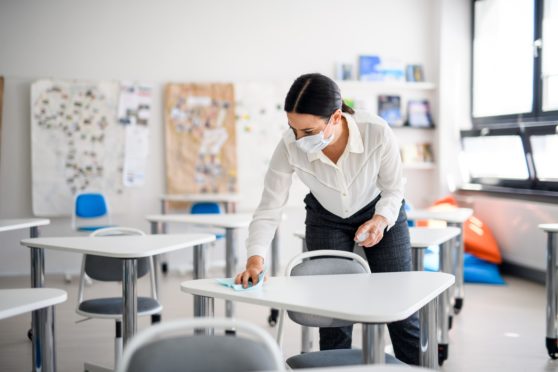Experts at St Andrews University are testing different surfaces and coatings for their effectiveness in killing the Covid-19 virus.
The team of physicists and virologists say their research could be a “game-changer” in the fight to stop the spread of the coronavirus, which can be transmitted through contact with surfaces in public spaces.
Previous research has shown the virus survives for a long time on commonly used materials such as stainless steel and plastic.
The St Andrews team, which has won £270,000 in UK Government funding to carry out the research, will build on existing knowledge about the antiviral properties of materials such as copper.
Professor Peter Wahl said: “The exploration of different ways in which the current Covid-19 pandemic can be kept under control is crucial to enable reopening society and ensure a flourishing economy.
“Apart from airborne direct transmission, indirect transmission via surfaces, in particular in public spaces, can play an important role in spreading the disease.”
Professor Andrea Di Falco, from the School of Physics and Astronomy, and Dr Catherine Adamson and Professor Terry Smith, from the School of Biology, are also involved.
Dr Adamson said: “This would potentially be a game changer for high-traffic surfaces in public spaces.
“We will build on existing knowledge about the antiviral properties of copper, and seek to optimise them.”
UK Government Minister for Scotland, Iain Stewart, said: “Scotland’s research sector is world-leading and the £270,000 funding from the UK Government will help to support and increase the talent and skills we have.
“It’s fantastic that Scottish researchers are responding to the pandemic and exploring one of the key issues – Covid-19 transmission through contact with surfaces in public spaces. The more we know about this virus the better we will be at fighting it.
“This funding is well deserved and an important contribution to tackling Covid-19.”










